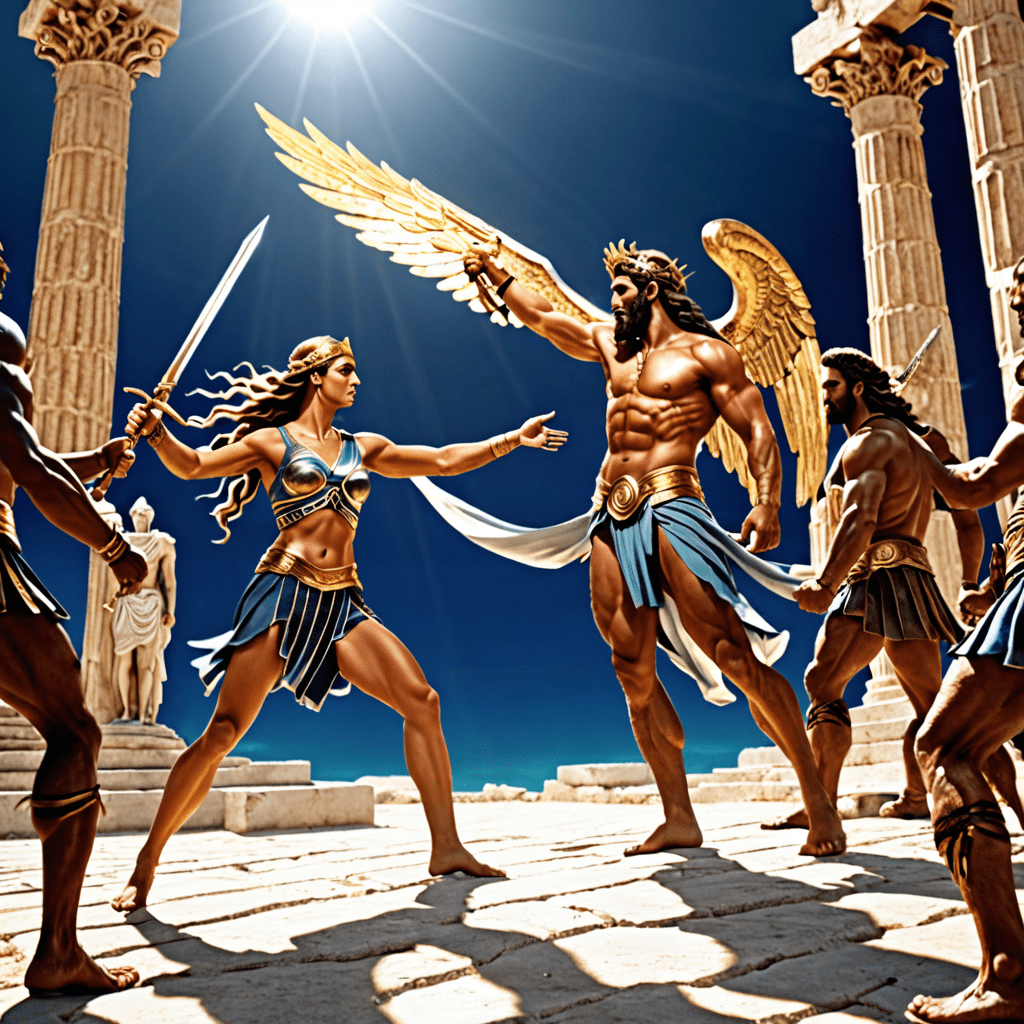The Great Creation Debate: Myths That Spark Controversy
Introduction to the Great Creation Debate
The Great Creation Debate encapsulates the ongoing conflict between creationism and evolution, two fundamentally different perspectives on the origins of life and the universe. Creationism, often rooted in religious beliefs, asserts that a divine being created life in its current form, while evolution, grounded in scientific inquiry, posits that species develop over time through natural processes. This debate is significant not only within the realms of science and religion but also in educational contexts where curricula are shaped by these contrasting views.
Historical Background of Creation Myths
Throughout history, various cultures have developed their own creation myths to explain the origins of the world and humanity. These myths often reflect the values and beliefs of the societies from which they spring. For instance:
- The Babylonian Enuma Elish: A story of gods battling for supremacy, leading to the creation of the world.
- The Hindu Rigveda: Describes a cosmic sacrifice that brings forth the universe.
- The Chinese Pangu Myth: Tells of a giant who separated the earth and sky, creating the world.
These ancient narratives have influenced modern creationist beliefs, particularly among those who interpret religious texts as literal accounts of creation.
The Biblical Creation Narrative: Genesis and Its Interpretations
The Genesis creation story, found in the Bible, outlines a six-day process in which God creates the world, culminating in the creation of humans. This narrative has been the foundation for many Christian beliefs about creation. Within Christianity, interpretations of Genesis vary widely:
- Literal Interpretation: Some believers hold that Genesis describes a factual account of creation, asserting that the earth is approximately 6,000-10,000 years old.
- Metaphorical Interpretation: Others view the Genesis account as allegorical, suggesting that the story conveys spiritual truths rather than literal historical facts.
Scientific Theory of Evolution: Key Principles and Evidence
The scientific theory of evolution, primarily associated with Charles Darwin, explains how species evolve over time through the process of natural selection. Key principles include:
- Natural Selection: The process where organisms better adapted to their environment tend to survive and produce more offspring.
- Genetic Variation: Differences among individuals in a population that can be passed to the next generation.
Evidence supporting evolution is robust and includes:
- Fossil Records: Documented changes in species over millions of years.
- Genetics: Molecular biology has shown how genetic mutations contribute to evolution.
- Empirical Evidence: Extensive research across various fields corroborates evolutionary theory.
Common Myths Surrounding Creationism
The creation debate is rife with myths that perpetuate misunderstandings. Some of the most common include:
- Myth 1: Evolution is just a theory. This statement misrepresents the scientific meaning of “theory,” which in science refers to a well-substantiated explanation of some aspect of the natural world.
- Myth 2: Creationism is scientifically valid. Many scientists argue that creationism lacks empirical support and does not adhere to the scientific method.
- Myth 3: There are no transitional fossils. In fact, numerous transitional fossils have been discovered, illustrating the gradual changes between species.
The Role of Education in the Creation Debate
The educational landscape is a battleground for the creation versus evolution debate. Key issues include:
- Curriculum Debates: Schools often face pressure to include creationism in science classes, leading to contentious debates about what constitutes valid scientific education.
- Legal Battles: Landmark cases such as the Scopes Trial (1925) and Kitzmiller v. Dover (2005) have set precedents regarding the teaching of evolution and creationism in public schools.
Public Perception and Misconceptions
Public opinion plays a significant role in the creation debate. Polling data indicates that beliefs in creationism and evolution can vary dramatically based on demographics, geography, and education levels. Factors influencing public perception include:
- Media Influence: Television, films, and literature often portray creationism and evolution in polarized ways, shaping public understanding.
- Religious Affiliations: Individuals’ beliefs about origins are frequently aligned with their religious backgrounds, affecting their acceptance of scientific explanations.
The Intersection of Science and Religion
The relationship between science and religion is complex. Many religious leaders advocate for the compatibility of faith and science, suggesting that both can coexist harmoniously. Key perspectives include:
- Theistic Evolution: The belief that God uses evolution as a means of creation, reconciling scientific understanding with religious faith.
- Non-literal Interpretations: Some religious groups promote non-literal interpretations of sacred texts, allowing for acceptance of scientific theories.
The Impact of the Creation Debate on Society
The ongoing creation debate has broad implications for society, affecting scientific literacy and critical thinking skills. The consequences include:
- Policy-Making: Decisions on education and science funding can be influenced by the prevailing beliefs about creation and evolution.
- Healthcare and Environmental Issues: Acceptance of scientific principles is crucial for addressing public health and environmental challenges.
Conclusion: Navigating the Myths and Fostering Dialogue
The Great Creation Debate highlights the need for respectful discourse between opposing viewpoints. Understanding both scientific and religious perspectives can foster a more comprehensive dialogue about our origins. As society continues to explore the intersection of science and spirituality, it is crucial to encourage critical thinking and open-minded exploration of these complex issues.




